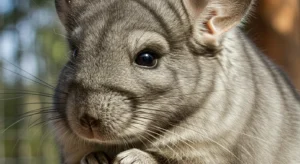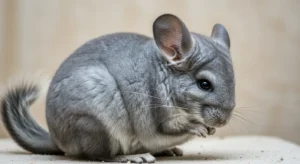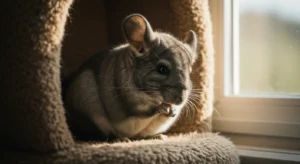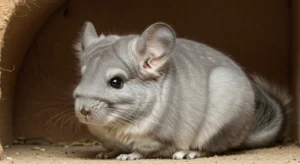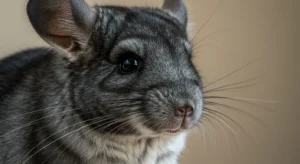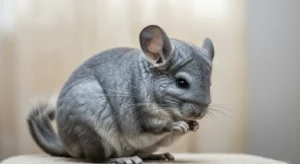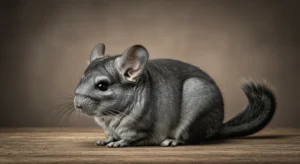Socializing Chinchillas with Other Pets
Many households enjoy the company of multiple types of pets. If you have a chinchilla and other animals like dogs, cats, rabbits, or birds, you might wonder if they can safely interact or even become friends. While heartwarming images of interspecies friendships exist online, the reality for chinchillas is complex and requires extreme caution. Prioritizing the chinchilla’s safety and well-being must always be the primary concern.
Understanding Natural Instincts
It’s crucial to remember the inherent nature of each species involved:
- Chinchillas: Are prey animals. Their instinct is to flee or hide from perceived threats. They are small, fragile, and easily stressed or injured.
- Dogs and Cats: Are predators, regardless of how domesticated or gentle they may seem. Their prey drive can be triggered unexpectedly by the quick movements or sounds of a small animal like a chinchilla. Even playful nips or swats can be fatal.
- Other Small Mammals (Rabbits, Guinea Pigs): While also prey animals, they have different communication styles, dietary needs, and may carry bacteria harmless to them but potentially dangerous to chinchillas (like Bordetella).
Chinchillas and Other Chinchillas
As covered elsewhere, chinchillas can often live happily with companions of their own species, but even these introductions require careful, gradual processes. This is the safest form of “socialization” for a chinchilla.
Chinchillas and Dogs/Cats
This is generally the highest-risk scenario and direct interaction is strongly discouraged by most experienced owners and rescues.
- Predator-Prey Dynamic: Even the calmest dog or cat can have its prey drive triggered. A quick pounce, bite, or scratch can cause severe injury or death in seconds.
- Stress: The mere presence of a predator nearby can cause chronic stress for a chinchilla, even if no physical contact occurs. Seeing or smelling a cat or dog near their cage can be terrifying.
- Supervision is Not Foolproof: Accidents can happen incredibly fast, even under direct supervision.
- Recommendation: Never allow direct physical interaction. Keep dogs and cats out of the room when the chinchilla is having out-of-cage playtime. Ensure the chinchilla’s cage is secure and cannot be knocked over or accessed by other pets. Safe multi-pet household management with chinchillas prioritizes separation.
Do not assume your “gentle giant” dog or “lazy” cat poses no threat. Instincts can override training in an instant. The risk to the chinchilla is too great.
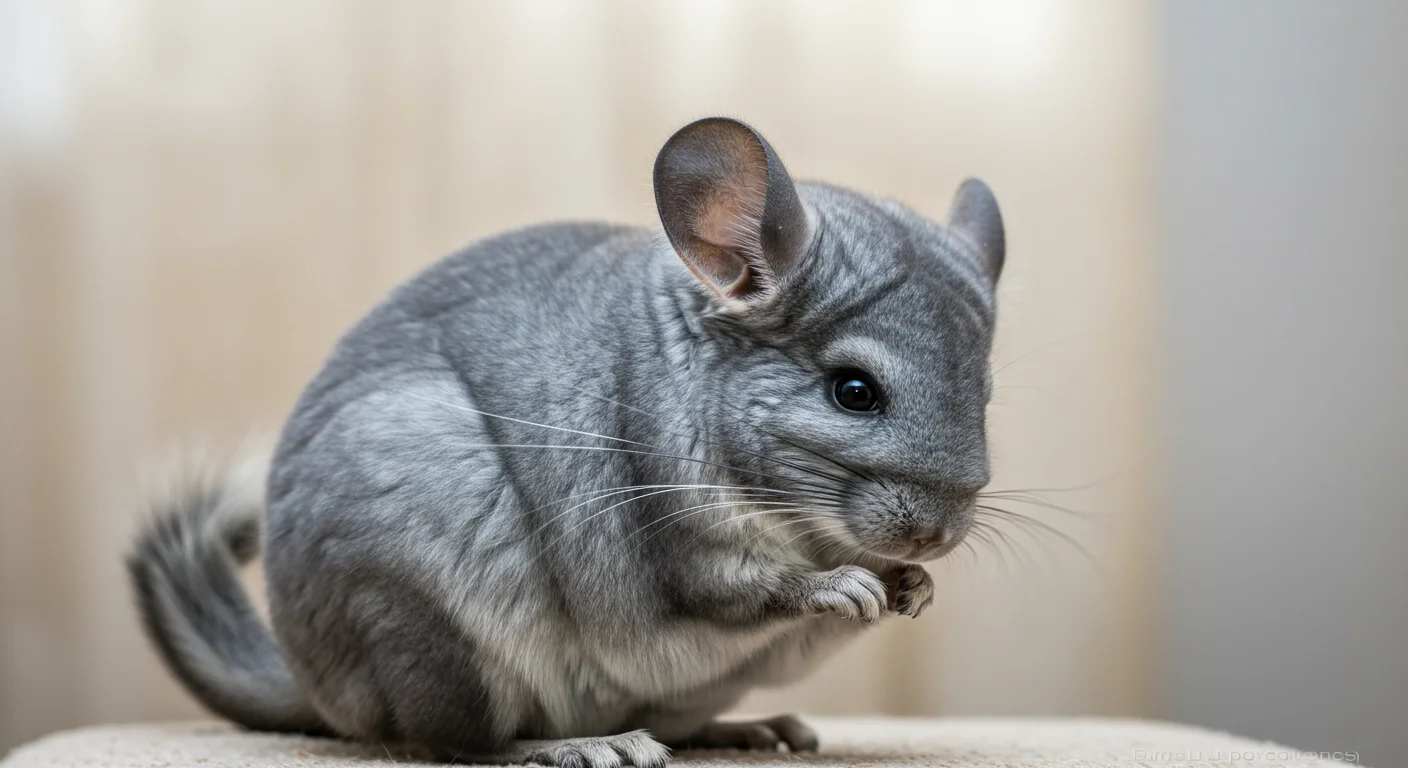
Chinchillas and Other Small Mammals (Rabbits, Guinea Pigs)
While seemingly less risky than interactions with predators, housing or allowing playtime between chinchillas and other rodents/lagomorphs also poses problems:
- Disease Transmission: Rabbits and guinea pigs can carry bacteria (like Bordetella bronchiseptica) that may not harm them but can cause fatal respiratory infections in chinchillas.
- Dietary Differences: Their nutritional needs are different. Sharing food can lead to imbalances or digestive upset.
- Behavioral Clashes: Different communication styles can lead to misunderstandings and aggression. A kick from a rabbit could injure a chinchilla.
- Stress: Forced proximity can still cause stress.
- Recommendation: House separately. Do not allow shared playtime. While they might tolerate visually seeing each other from separate secure enclosures across a room, direct interaction is not advised.
Chinchillas and Birds/Reptiles
- Birds: Loud noises or sudden movements from larger birds can frighten chinchillas. There’s also a risk of disease transmission or injury from beaks/talons. Keep separate.
- Reptiles: Pose significant risks. Larger reptiles may view chinchillas as prey. There’s also the risk of transmitting pathogens like Salmonella. Absolutely no interaction should occur.
Risks of Interaction (Summary)
- Injury or death (from predators or even other prey animals)
- Disease transmission
- Chronic stress for the chinchilla
- Potential for fights and aggression
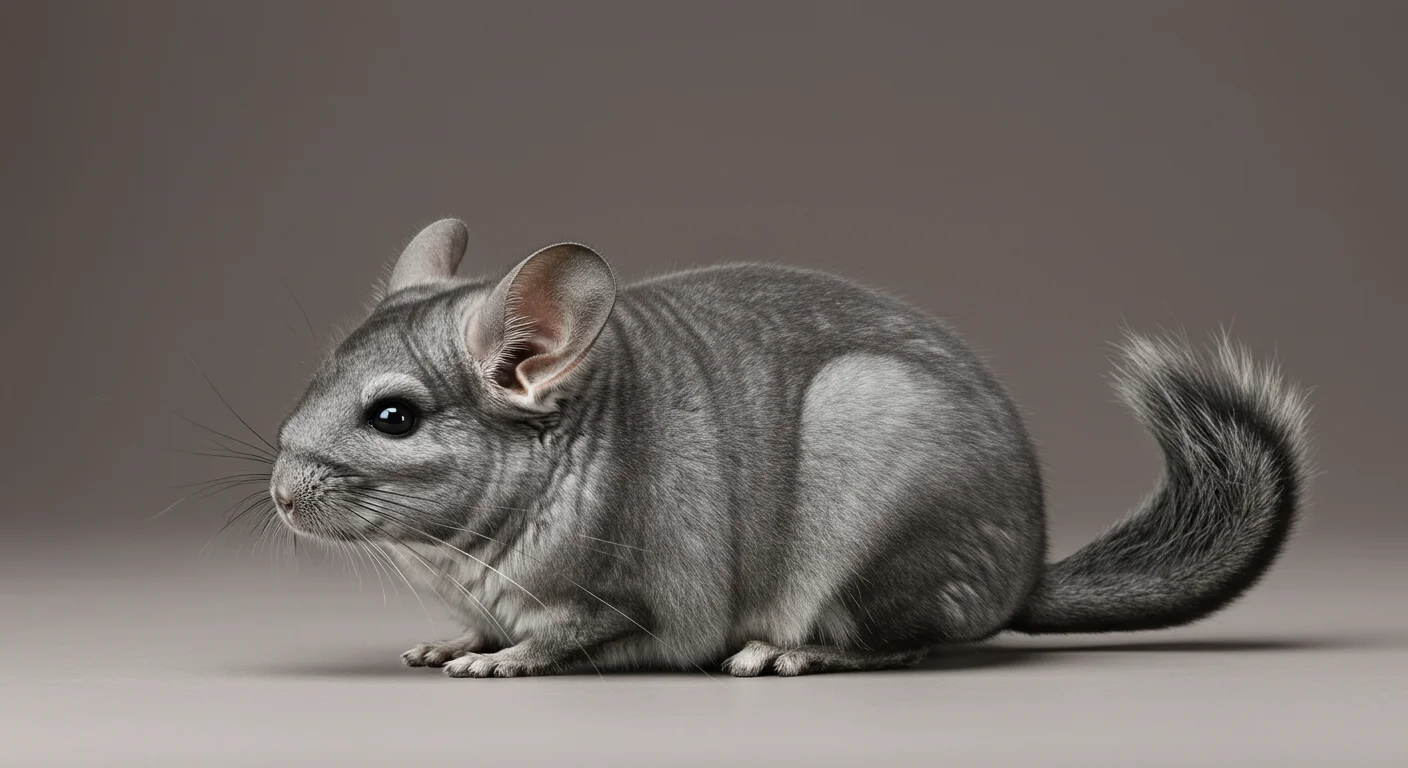
Safe Management Strategies
If you have a multi-pet household including a chinchilla:
- Separate Housing: Keep the chinchilla’s cage in a room inaccessible to other pets, especially predators.
- Secure Cage: Ensure the cage is sturdy, escape-proof, and cannot be easily accessed or tipped over by other animals.
- Supervised Playtime (Chinchilla Only): Conduct chinchilla playtime in a secure room with the door closed, ensuring no other pets can enter.
- Hygiene: Wash hands thoroughly after handling one type of pet before interacting with another, especially between chinchillas and rabbits/guinea pigs.
- Prioritize the Chinchilla’s Needs: Remember their vulnerability and sensitivity to stress. Their safety must come first. Adhering to chinchilla safety protocols around other animals is essential.
Conclusion: Prioritize Safety
While the idea of interspecies friendships is appealing, the practical risks associated with socializing chinchillas with other types of pets are significant. For the health, safety, and well-being of your chinchilla, it is nearly always best to maintain strict separation between them and other household animals like dogs, cats, rabbits, guinea pigs, birds, or reptiles. Focus on providing your chinchilla with appropriate social interaction with humans (if they enjoy it) or well-matched chinchilla companions.
